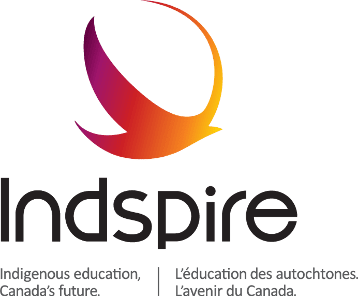10 Terms You May Not Have Known Before University
When applying to university, you’ll encounter many words that you may never have heard of before, and there aren’t always resources to help you know what’s what, especially with terms people assume you know already. Below you’ll find 10 words you may not have known, but should know, before you go to university…
Lecture
In high school, you may be used to having one class with a teacher and then having time to work on homework or other practice assignments before or after that in-class session. In university, this is a little different. Now your class will most likely be split up into a lecture, where you are learning the content, and tutorials/labs where you are expanding on that new knowledge or practicing what you have learned. Lectures are when you are more likely to have a room full of hundreds of students where the professor is presenting to you for the whole hour or more.
Tutorial/Lab
Tutorials/labs are where you will be with a smaller group of people from this larger class and engage in practical experience, sometimes hands-on. These classes are separate from lectures and are more likely led by the professor’s teaching assistants (TAs). Most tutorials/labs take attendance for participation marks which will make up a part of your grade, so be sure to attend!
Professor
Professors are teachers who are employed at the university level. They can also be called “Prof” or “instructor.” One tip: Be careful when addressing professors; some are very particular about how you address them. Many become offended by the use of “Ms./Mr.” or “Ma’am/Sir.” If they don’t let you know how they want to be addressed, the safest option is to refer to them as just “professor” or “professor *insert the last name*.”
Teaching Assistant (TA)
Teaching Assistants, commonly referred to as TAs, are a professor’s right-hand man/woman. TAs are graduate/senior undergraduate students who work for the professor. They will be the ones who are most likely marking your work, answering questions, taking attendance, or leading your tutorials/labs. Often TAs are the ones who will answer any simple questions you have, and most professors will often tell you to forward your questions to the TA. Otherwise, the professor would be overwhelmed with emails and never get back to you.
Coffee Chats
Coffee chats are informal “interviews” with experienced professionals. Coffee chats are often done to build your network, connections, and gain insights into the job market. Although that’s not all they are limited to. You can even build long-lasting friendships by asking one of your classmates or upper-year students if they want to have a coffee chat. It allows you to learn a little more about a person and their experiences so that you can both learn from each other. In addition, coffee chats are a great way to get to know anyone outside of professional settings. Want to try it out? Sign up for the Rivers to Success program, and we can help you find someone to have a chat with!
Bursary
A bursary is a one-time sum of money given to students based on financial need and sometimes academic performance. It does not need to be paid back and differs from scholarships focusing more on academic performance. You can apply for both scholarships and bursaries specific to Indigenous students here!
Educational Advisor
Educational Advisors are much like the guidance counsellors you may have had in high school. They not only help you navigate your degree and choose your courses for the year, but they can also help you to find resources, establish a plan for your university experience, and help you make sure you are in a program that is right for you. So don’t be afraid to set up a meeting with yours. They are there to help you!
Faculty
Faculties are departments of both students and staff within the school that are associated with similar areas of study. For example, an arts faculty will contain people related to arts programs such as media studies, visual arts, etc. There can be many faculties within one school, and you are definitely a part of one!
Reading Week
In high school, you are used to week-long breaks such as March Break and Christmas break. In university, there are extra breaks during the year called “Reading Week.” These breaks typically happen halfway through the semester and usually last about 5 days or more, depending on the school. Although, unlike Christmas break, you may find that these breaks aren’t really a break from your studies. Since it is the middle of the semester, you might have significant assignments or midterms that you need to work on. This is a chance to catch up on your studies, but make sure to give yourself at least a day of rest. It’s well deserved, and you’ll need it.
Internship
Internships are a learning opportunity for students to gain practical experience in their field of study. The great thing about an internship is that by the end of it, if your employer sees fit, you may have an opportunity to return to that company for a position when you finish school. Most internships are completed in the summer when students are not busy with school, but if you plan on applying to one, do it early. Most internships start looking to hire in the fall or spring, especially at more prominent companies. Interested in an internship at Indspire? With opportunities in areas such as Marketing & Communications to Research, we’d love for you to join our team. Keep an eye on our social media (@indspire.ca on Instagram and Facebook) for updates on when we start looking for candidates and what kind of opportunities we have available for you.
Now that you are well-informed about some important terms you need to know, you’re almost ready to take on the post-secondary world. Check out Indspire’s blog page or find similar articles below to ensure you are fully prepared to take that next step in your educational journey. We’re here to help.





